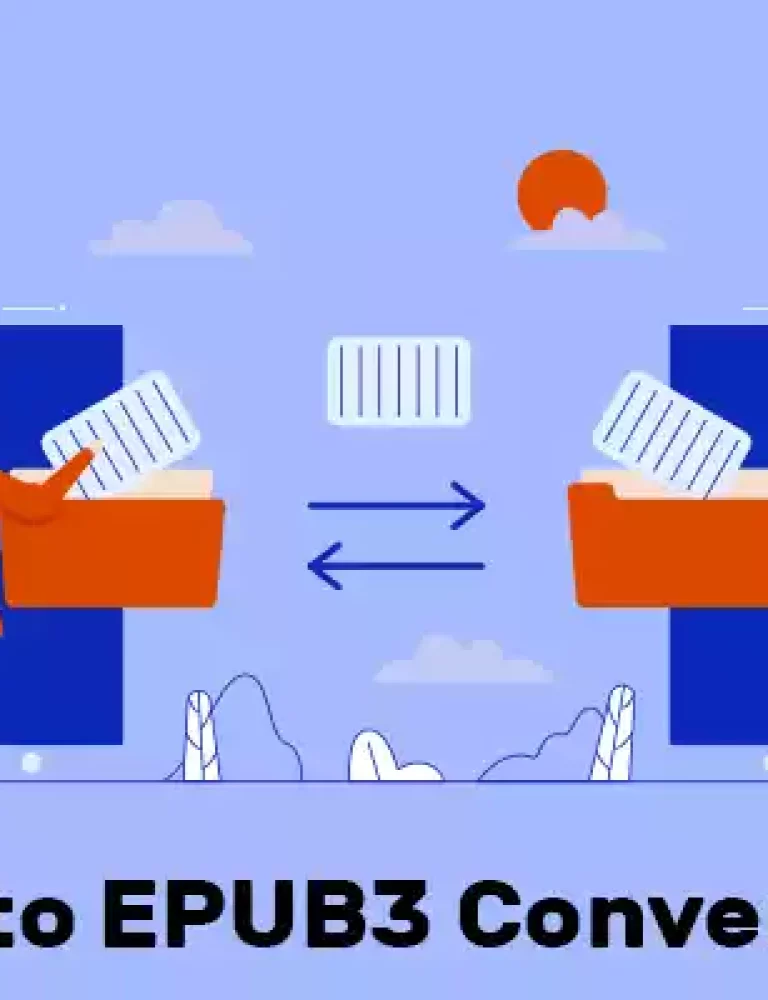Fueled by digital innovation, things are changing fast because of the internet and digital technology. Now, instead of just printing books on paper, many publishers are also publishing eBooks.
eBooks are digital books that you can read on a screen, like on a phone or tablet. They’re becoming really popular, and lots of publishers are switching to ePublishing. The market for eBooks is growing fast. It was worth about $46.48 billion in 2023, and experts think it will reach $79.6 billion by 2028.
That’s a big jump!
But even with eBooks gaining ground, old-fashioned print books are still holding their own. They have a unique charm that digital books can’t quite match. People still love the feeling of holding a real book in their hands and flipping through the pages.
So, as publishing changes, it’s important to understand both sides: eBooks and traditional print.
This article will explore how publishing is evolving and help you see the differences between eBooks and print books so you can decide which one you prefer to create and distribute content.
Table of Content
I. What is Traditional Print Publishing?
III. Understanding the Differences: ePublishing vs. Traditional Print
What is Traditional Print Publishing?
Traditional print publishing is the process of printing content in physical form. The publishers sell to the public directly or via distributors. You must go to a bookstore if you want to purchase a book.
Alternatively, you can buy a hard copy of the book online from eBook stores, and they will courier it to your location within a predetermined window of time.
When publishing a book, typesetting must come first, followed by printing. The publisher would next require a physical bookstore to sell the books and a warehouse to store and distribute the hard copies.
Additionally, you may also have an option of selling the books in a digital format.
What is ePublishing?
ePublishing, also called digital publication, is the term used to describe books or any content that is published in a digital format. Online books or any type of digital content have a large readership, just like traditional books do.
According to Statista, the overall number of eBook readers will increase to 1.1 billion by 2027.
Audiences consuming digital content are typically tech-savvy and prefer the convenience of accessing materials digitally. In contrast to print publications, eBooks are intended for a contemporary readership that scrolls through the content at a fast pace.
Understanding the Differences: ePublishing vs. Traditional Print
Be it ePublishing or traditional print- each has its own special qualities and benefits to create and distribute content. This short comparison will help us understand what makes them different and why you might want to consider switching to ePublishing.
Reader Experience
One of the reasons why ePublishing is in demand is because of the better reading experience among eBook readers.
In ePublishing, readers can customize their reading experience by adjusting font size and brightness and accessing multimedia features. ePublishing lets authors add interactive multimedia elements to enrich storytelling and enhance reader engagement.
Moreover, it is easy for individuals with disabilities to access and use the digital format. Yet, some readers may still prefer the tactile feel and sensory experience of reading a physical book.
Market Reach and Audience
ePublishing gives readers access to a wide variety of books, including those by indie authors and self-publishers. This means readers can find books that match their interests and discover new authors and genres they might not have known about.
For authors, ePublishing allows them to reach readers all over the world and connect with niche markets. However, in some places, traditional print books are still more popular, especially where digital access is limited or people prefer physical books.
Cost Considerations
Digital publications are often cheaper as they eliminate the costs of printing, warehousing, and shipping associated with traditional print books.
They require a one-time investment in an ePublishing platform like KITABOO. This cost-effectiveness makes them an attractive option for both readers and authors.
On the other hand, print books may cost more due to factors like paper quality and quantity. Publishers also need to produce fresh copies of a book whenever there is an update. Then there are the extra costs for transportation and warehousing.
Accessibility and Convenience
ePublishing offers quick access to a vast library of books online. Readers can easily enjoy their favorite reads anywhere without the hassle of carrying physical books. Authors benefit from reaching a global audience without the constraints of traditional printing and distribution options.
In traditional print, however, accessibility may vary based on availability in local bookstores, libraries, or online stores. As a result, the publishing industry is now switching to ePublishing to ensure their content reaches a diverse readership.
Author Control and Flexibility
ePublishing empowers authors with greater control and flexibility over their work, allowing them to bypass traditional publishing channels and self-publish their content.
They retain ownership of their intellectual property, dictate creative decisions, and set their own publishing timeline. Traditional print, on the other hand, provides editorial support and broader distribution options.
Environmental Impact
ePublishing significantly reduces environmental impact by minimizing paper consumption and carbon emissions associated with print production and distribution.
Digital books eliminate the need for paper, ink, and packaging materials, contributing to conservation efforts and sustainability. Authors can play their part in environmental conservation by choosing ePublishing over traditional print.
However, the production and disposal of electronic devices used for eBooks also have their own environmental impacts.
Publishing Speed and Efficiency
Traditional printing involves a lengthy process that can take several months for a copy to be published. This is due to the various steps involved, which include printing, binding, and distribution, all of which consume time.
In contrast, ePublishing only takes days or a week, allowing instant editing and sharing.
Additionally, ePublishing enables authors to receive immediate feedback from readers, facilitating quicker iterations and improvements to the content.
Takeaway
The shift towards ePublishing, including fixed layout formats, represents a significant transformation in the publishing industry.
To stay competitive and meet the evolving demands of readers and technology, publishing houses must incorporate eBook conversion services into their overall strategy. This ensures their relevance and longevity in the industry, allowing them to continue delivering high-quality content to their audience.
If you’re considering the shift from traditional publishing to ePublishing, consider leveraging KITABOO, a leading ePublishing platform. With KITABOO, you can create DRM-protected, interactive eBooks that offer readers an engaging reading experience. KITABOO allows you to add interactive multimedia elements like videos, audio, and graphics to enhance learning.
So what are you waiting for? Contact us today if you want to switch to digital publishing.
Discover How An Ebook Conversion, Publishing & Distribution Platform Can Help You
Kitaboo is a cloud-based content platform to create-publish & securely distribute interactive mobile-ready ebooks.
You May Also Like








